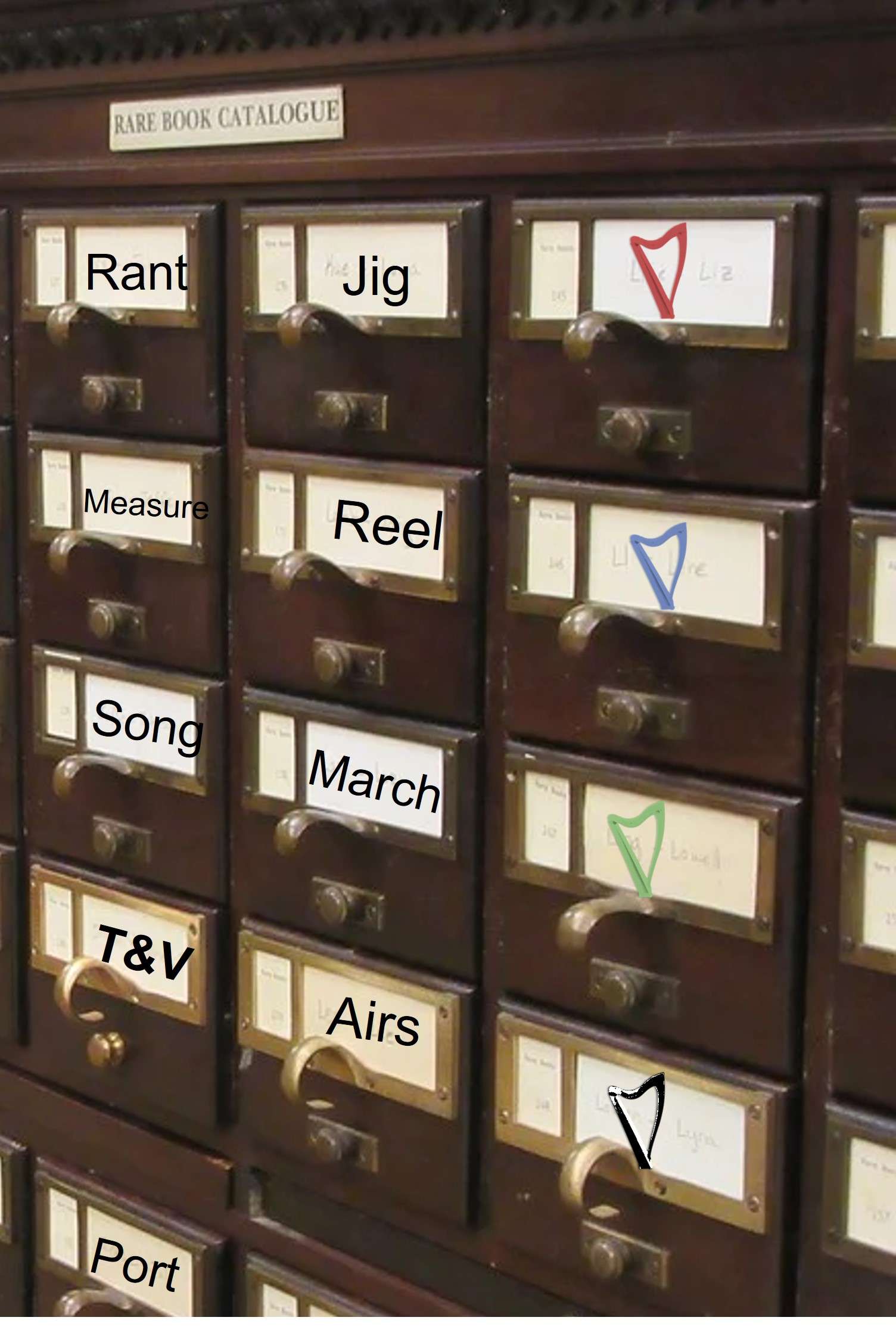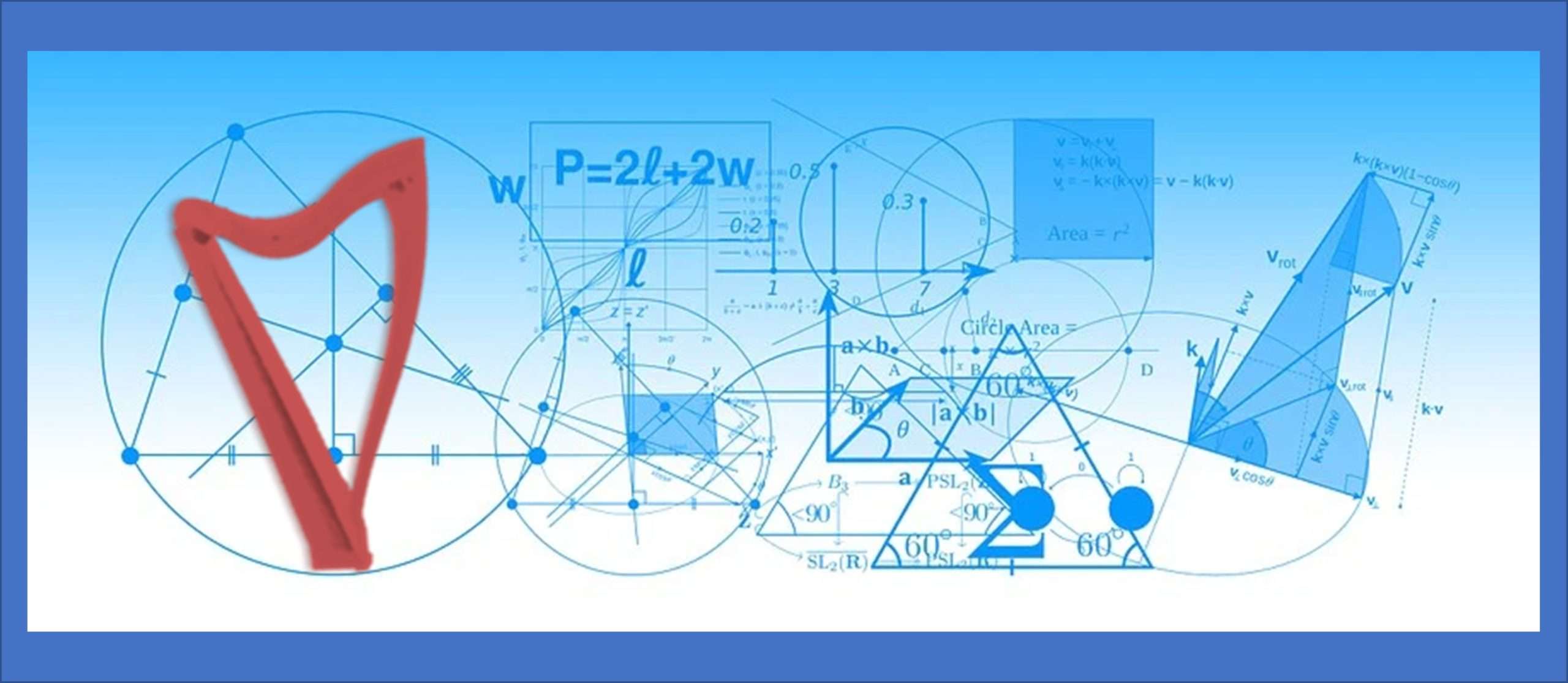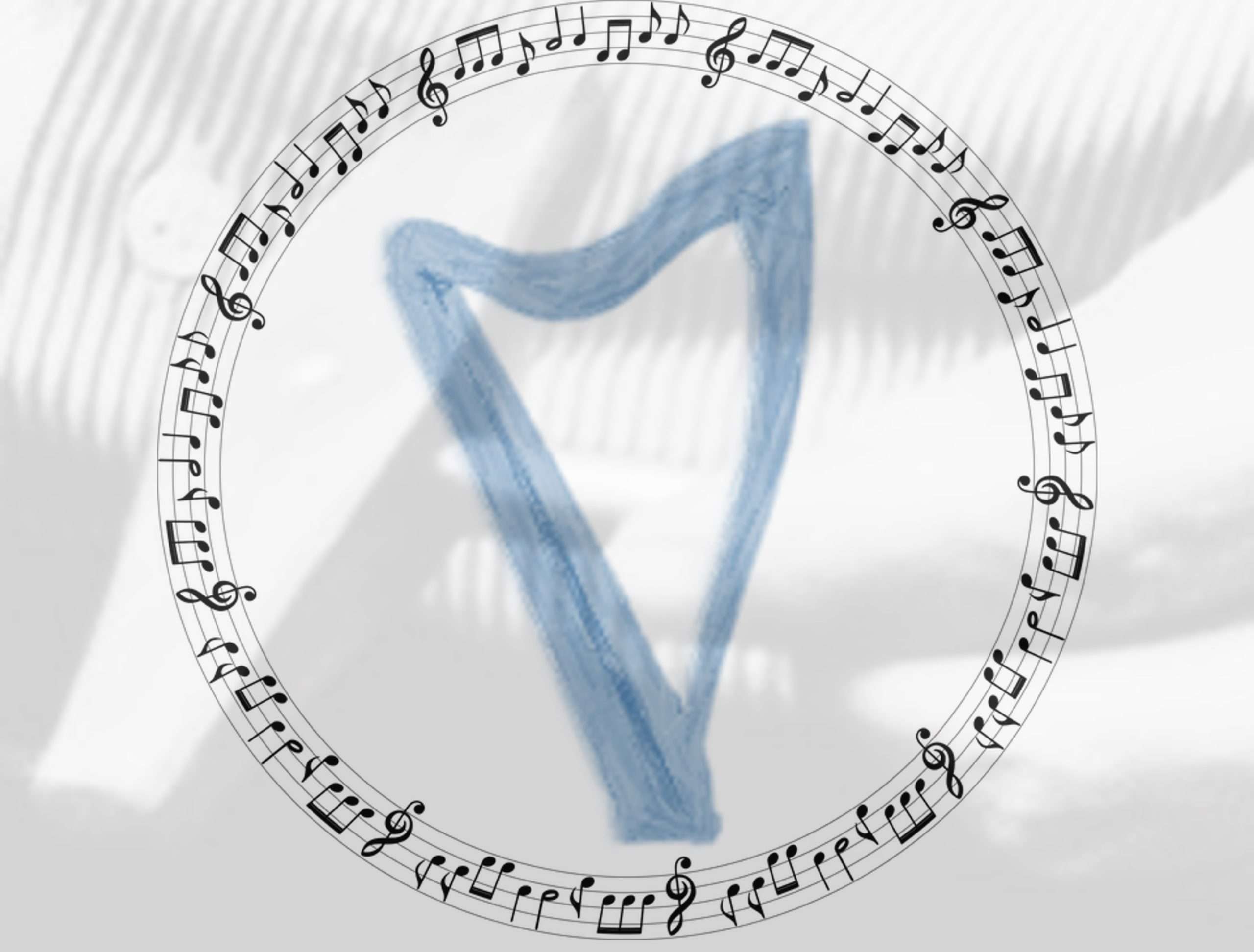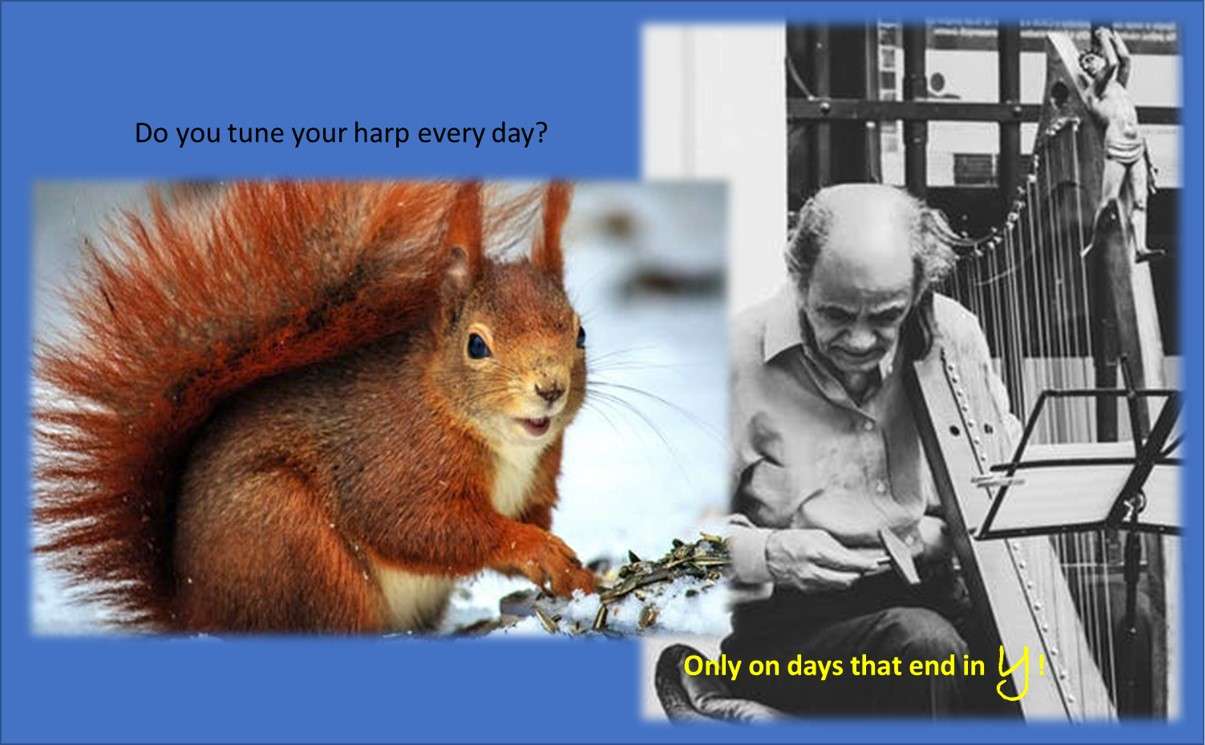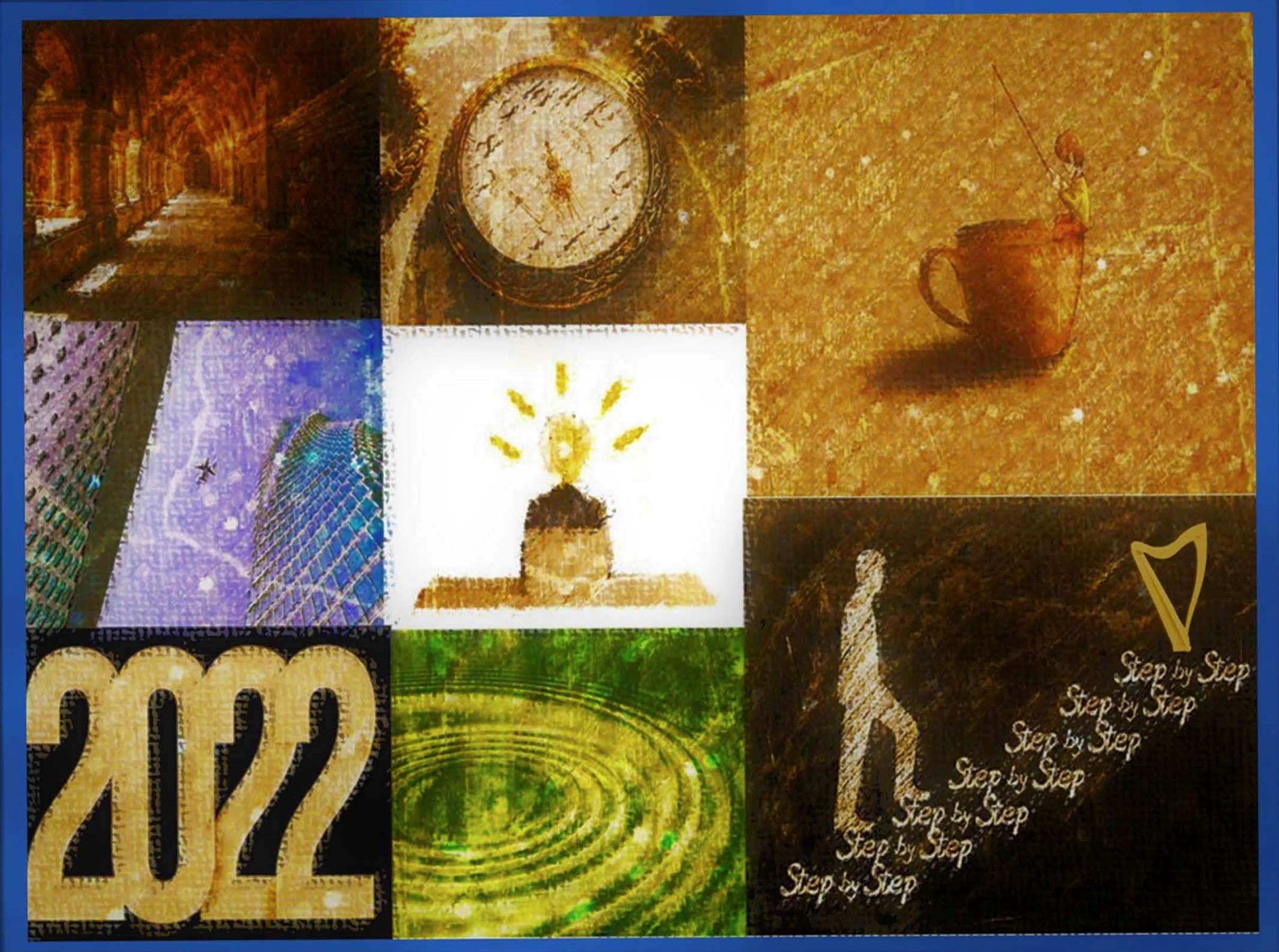Last week after I exhorted you to tune every day, you asked about tuners – good question!
A tuner is certainly an important tool. Unless you are born with perfect pitch, you’ll need one (and only about .0001% of the population does – that’s only about 775,000 people in the world!). But a quick internet search for tuners may set your head spinning – there are so many, and they are all shiny, and they all do different things, and are they even right for the harp?!
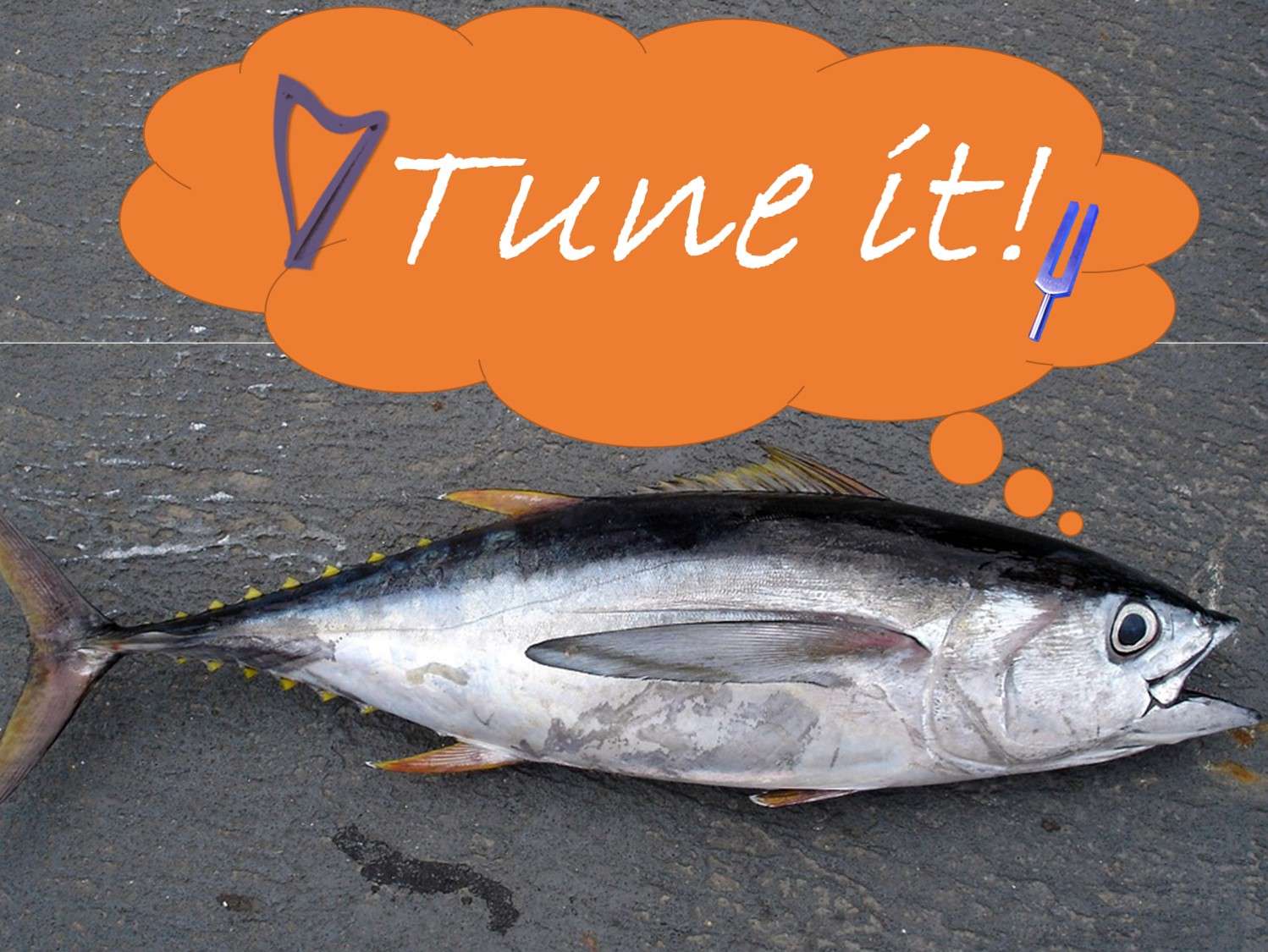 So, this week, a little walk through the veritable Candyland of tuner types. Hopefully this will help you decide which one is right for you. We should start with the (boring but required) caveats – all of this is my opinion, If you click on a link and buy one, I won’t get anything and I have no endorsement arrangements with any organizations (because I’m an idiot and I don’t make any money by “influencing” you!).
So, this week, a little walk through the veritable Candyland of tuner types. Hopefully this will help you decide which one is right for you. We should start with the (boring but required) caveats – all of this is my opinion, If you click on a link and buy one, I won’t get anything and I have no endorsement arrangements with any organizations (because I’m an idiot and I don’t make any money by “influencing” you!).
Tuners are simply tools. They range from simple and old school to amazingly complicated and precise. I have tried here to cover the basic types. I have included some to improve your knowledge even though you are unlikely to need or want them. Here goes.
First, you DO need a tuner of some kind. You will, of course, also use your ears, but since the pitches of the notes are mathematically related to one another, some level of precision is needed. When you are tuning, you will consult with the tool but you will also want to hear that your harp is in tune – that your octaves are aligned and that you are getting harmonics where you expect them.
Second, no matter which tuning tool you select, you will get better, faster, and more precise if you practice using it. That tuning every day thing will really help with that. In addition, the more you tune your harp, the better it will stay in tune. Yes, this is an infinite loop but it ensures you get better at it!
The first tuning tool you could use is a Tuning Fork like this one. Definitely old school. Also, it’s a tuning fork not a pitch fork! You can buy them at the behemoths or at a music shop. For harps tuned to C, F, or other major scale that keep the A string open, get a 440Hz fork (because they do, in fact, come in pitches) (Note that if you are tuned to Eb, you will want to get a G# like this one because you’ll want to tune with the levers off). I’d suggest the ones from a music shop because they have the rubberized handle which lets the fork vibrate while you hold it without impacting its frequency. To use the tuning fork, strike the tines on your arm or leg and then hold the base (the single end) to the sound board. You’ll hear the reference pitch emanating from the soundboard. Now play A3 (the A above middle C) and tune the string until you only hear one sound. If you can hear two separate tones, the string is not in tune. Once that string is in tune, then tune all the other A’s to A3. Then you can use the Circle of 5ths to tune the rest of the harp.
- Benefits of the Tuning fork –
- Works in any light
- Needs no batteries
- Lightweight, sturdy, and easy to carry
- Drawbacks –
- Only as accurate as your hearing and discipline
- Difficult to use in a noisy environment (like with other instruments also tuning).
- Significant learning and practice curve
The second tuning tool you could use is the Strobe tuner like this one. Honestly, I have seen these but have never used one. They are an electronic tuner which displays the difference between the reference frequency (what the note should be) and what you’re playing. They are a “gold standard” for tuning. They are scary very accurate.
- Benefits of the Strobe tuner:
- Accuracy! More accurate than any other tuner (likely more accurate that you can hear)
- Easy to determine if you’re in tune and if your harmonics are in (or out) of tune
- Easy to see the display and what’s going on
- Easy to use in a noisy environment
- Drawbacks –
- Expensive (even the smaller ones)
- Challenging (if you don’t fully understand how it works, you’re not easily going to find another harper to explain it to you)
- High precision can lead to “chasing” the pitch up and down around the center
Third we have Chromatic tuners. This is probably the most prevalent type of tuner you’ll see at any harp event. Chromatic tuners allow you to tune your strings to the closest note of the twelve-note chromatic scale (think going up the piano playing C – C# – D – D# – E – F – F# – G# – A – A# – B – B# – c). These are called semi-tones. This allows you to tune to whatever major scale you happen to tune to (C, F, Eb, or whatever you have chosen).
There is the handheld. This is probably the type of tuner you have. They come in a lot of forms but most of us are familiar with the Korg like this one. There is a more complicated Korg like this one.
- Benefits –
- Inexpensive
- Easy to read
- Easy to use
- Can be used in noisy environments if include a pick up (a small microphone you plug into the tuner like this one)
- Drawbacks –
- Battery powered
- Likely to break if you drop it
Another increasingly popular chromatic tuner is Clip On such as the Snark ST-2 like this one. You can clip it onto the tuning key or onto one of the sound holes on the back of the harp (which can be a challenge to see while you’re tuning). The microphone is in the clip, so they work well in noisy or quiet environments. These are flexible and work well – just make sure you get the right (red) one – the others are for guitars and don’t have the response you need. Same benefits and drawbacks as other chromatic tuners, but additionally even lighter, easier to carry, don’t need a pickup, and they’re just cute!
Finally, the last type of Chromatic tuner I’ll mention is a Phone App. There are plenty of free versions for Android and for Apple. I use gStrings but I don’t think there are vast differences between the available apps. These work as well as your phone can hear (so, pretty well) and are easy to read. Like the Snark, they have the same benefits as other chromatic tuners, the display may be more precise than your handheld (mine is at the single Hz so much more precise than my handheld) which can be good but may lead you to chase the pitch. The benefits are enhanced by the ubiquity of the phone – if you’ve forgotten your tuner, you’ll probably still have your phone! The don’t have a pickup so in a noisy room you may (or may not) be able to use it.
Regardless of the type of tuner you select – a few more sage thoughts –
- Having a backup is a good idea (and essential if you’re gigging). You might consider carrying two different tuners. In my gig bag I have a Korg, a Snark, and a tuning fork…and my phone – just in case.
- No matter how good your tuner is, carry spare batteries!
- Since your harp life is likely going to be long and you never know what kind of music you might be playing or who you might have the opportunity to play with, make sure your tuner can be calibrated (for instance you probably tune to A440Hz as a current convention, but you might move into other music that might have a different setting (like A4 = 432Hz)). You might also look for other types of tuning – does your tuner have non-equal temperament such as Pythagorean?
- No matter which of these you choose – practice using it! The more you use it to tune, the better you’ll be able to correlate what the display tells you with how much to turn the wrench.
- Finally – nothing beats listening. It really doesn’t matter what the display says if the harp sounds wrong! Be prepared to retune a string that sounds off. Do that before you start playing!
I hope some of that was helpful. What type or brand of tuner do you have? Do you like it? What does it do that you like? What is it missing? Let me know in the comments!
 How? Well, the same ways you’d be sure to stay connected to any other love in your life! Here are five things that might help:
How? Well, the same ways you’d be sure to stay connected to any other love in your life! Here are five things that might help: